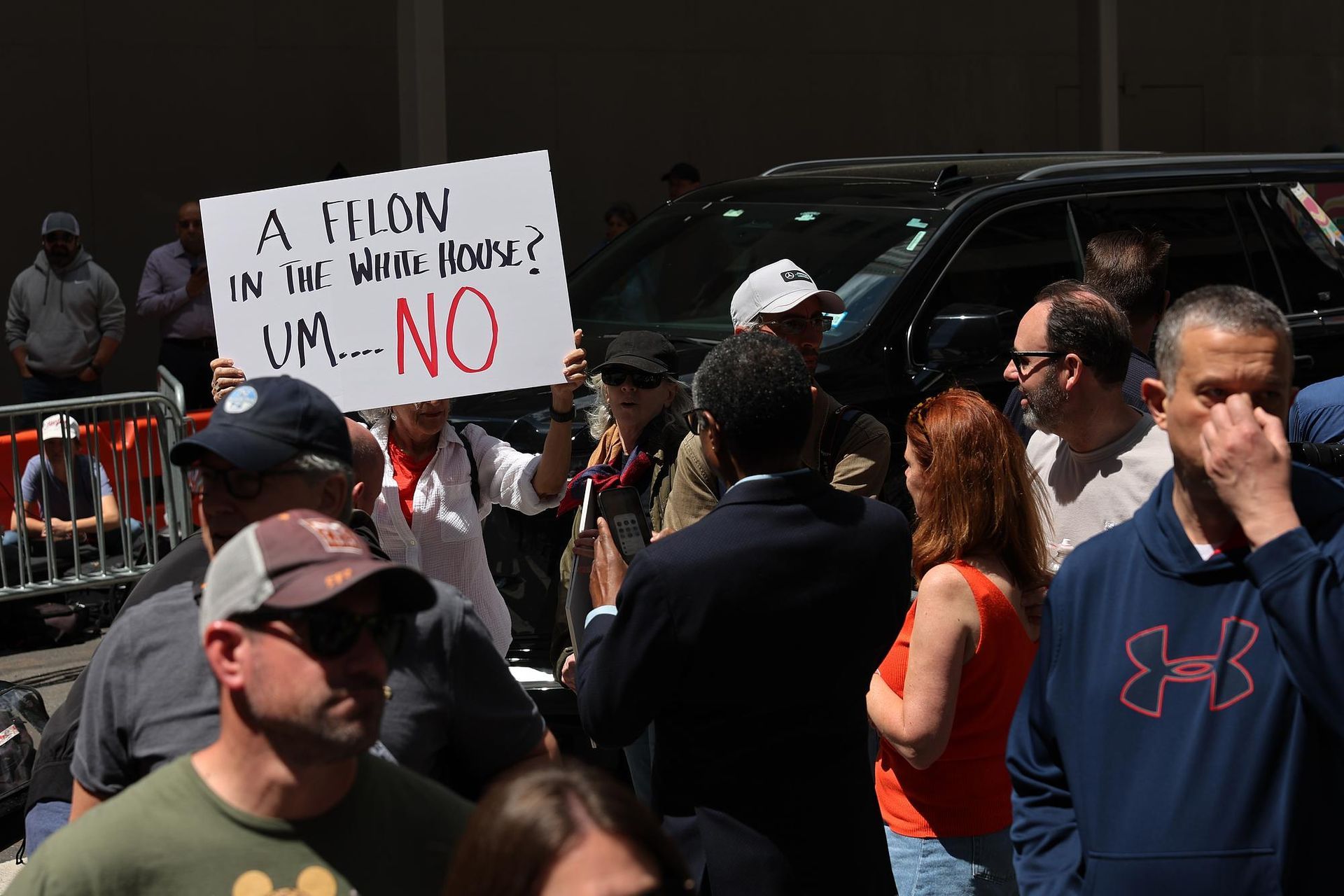The Problem with "The Prosecutor Vs. The Felon"
The word "felon" doesn't hurt the former President, but it can hurt millions

Bear with me for a second, if you kindly wouldn't mind.
The Prosecutor versus The Felon framing aims to create a stark split screen between Democratic Presidential nominee Vice President Kamala Harris, and former President Donald Trump, the Republican nominee for President. Those who use the comparison seek to illustrate how they both fall squarely on opposite ends of the law based on, well, everything we've read about over the last eight years. But it’s not clear that this line of attack is effective, and there are real drawbacks to promoting the simplistic story of good versus evil in the context of prosecutors and felons.
Prosecutors, for example, have a history of bending the rules to get a conviction, and thousands of people have been sent to prisons for crimes they did not commit. The term “felon” is a label that stigmatizes more than it describes, and does a real disservice to efforts to reform a broken justice system.
Calling the 45th President a felon is not unfair to him personally. While there are millions of people who’ve been mistreated by the US justice system, Trump is not one of them. He has spent years, if not decades, skirting the law, yet he has still evaded any meaningful personal consequences for his misdeeds. After the Supreme Court’s ruling in Trump v. United States, his status as above the law has been rubber stamped by the US Judiciary system.
But for others, particularly those living on the margins of society, the label “felon” can be a mark of injustice. It reduces a full human, even one who’s rehabilitated, to one of their worst moments, and it further stigmatizes people with a felony conviction as inherently dangerous and undeserving of a second chance.
“When most Americans think about who is in the criminal legal system, they envision somebody who is Black, who is poor, who is somebody who is ‘not like us,’” said Insha Rahman, director of Vera Action, a criminal justice reform advocacy group. “There’s an othering there that is inherent in calling somebody a ‘felon.’ It doesn’t stick to Donald Trump because he doesn’t fit those characteristics that are in people’s minds, but the danger is that it will stick to others and reinforce that stigma the more it’s thrown around.”
None of this means that Harris should avoid mentioning Trump’s crimes. It's one of many components the Harris campaign should absolutely focus on when drawing a contrast between the candidates. But to do it effectively, progressively-minded people need to move past broadly painting Trump as a “felon” and talk more specifically about what Trump actually did, and how his widespread and blatant corruption defrauded voters.
Being convicted of a felony doesn’t disqualify someone from running for public office, and it shouldn’t mean that someone is inherently unfit to serve anyway. Those people who used their time during incarceration to better their lives, return to their families, and use their experiences to improve their communities, are precisely the people we should all want seeking public office because of their life experiences and what was learned on their rehabilitative path.
You can read more in "The Problem With Labeling Trump a ‘Felon" by Carroll Bogert, of The Marshall Project, a nonpartisan, nonprofit news organization that seeks to create and sustain a sense of national urgency about the U.S. criminal justice system.










